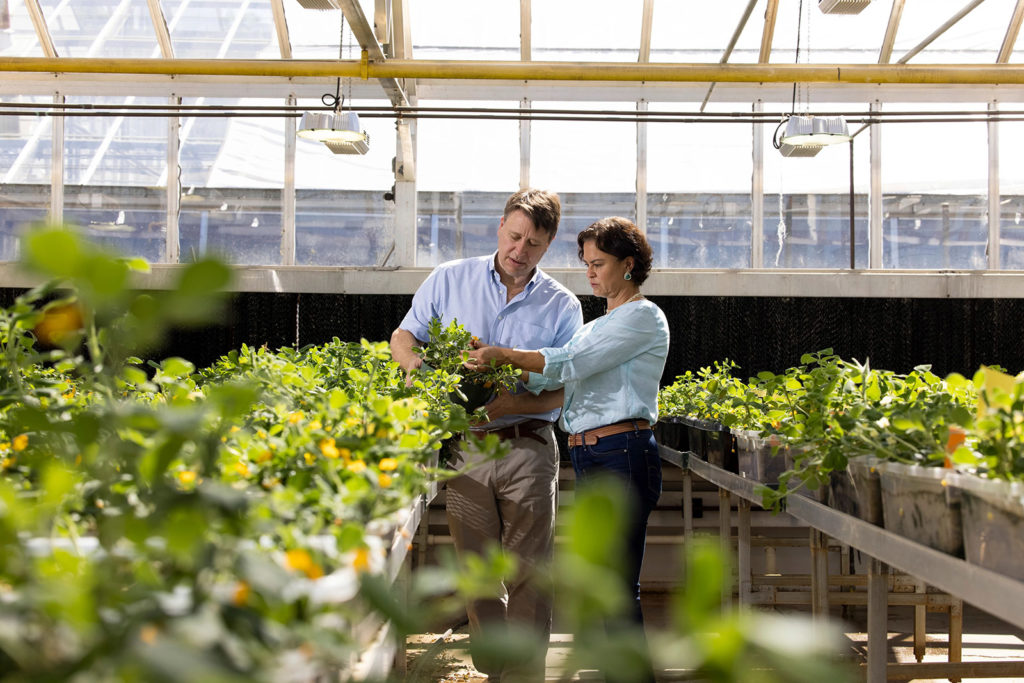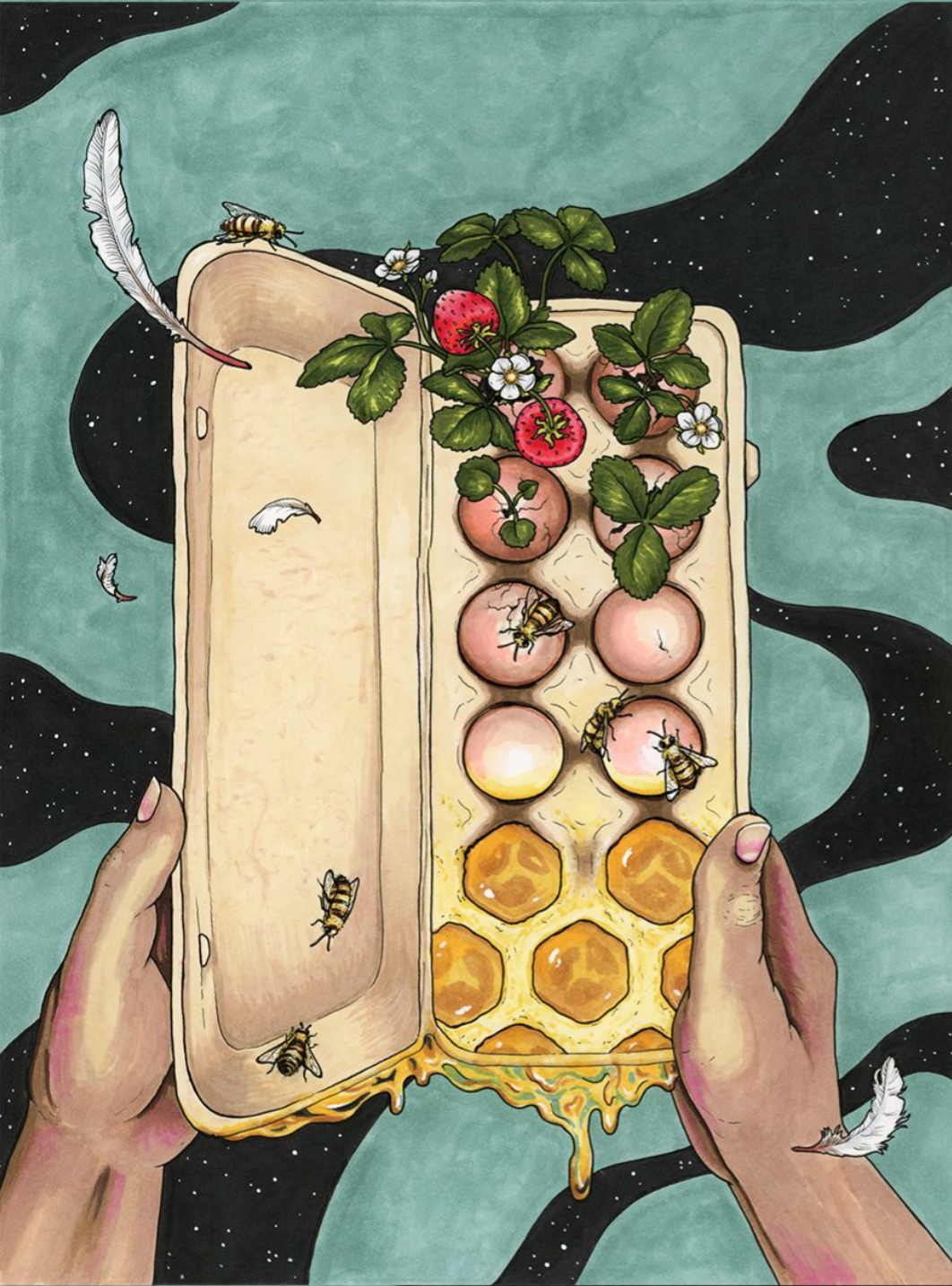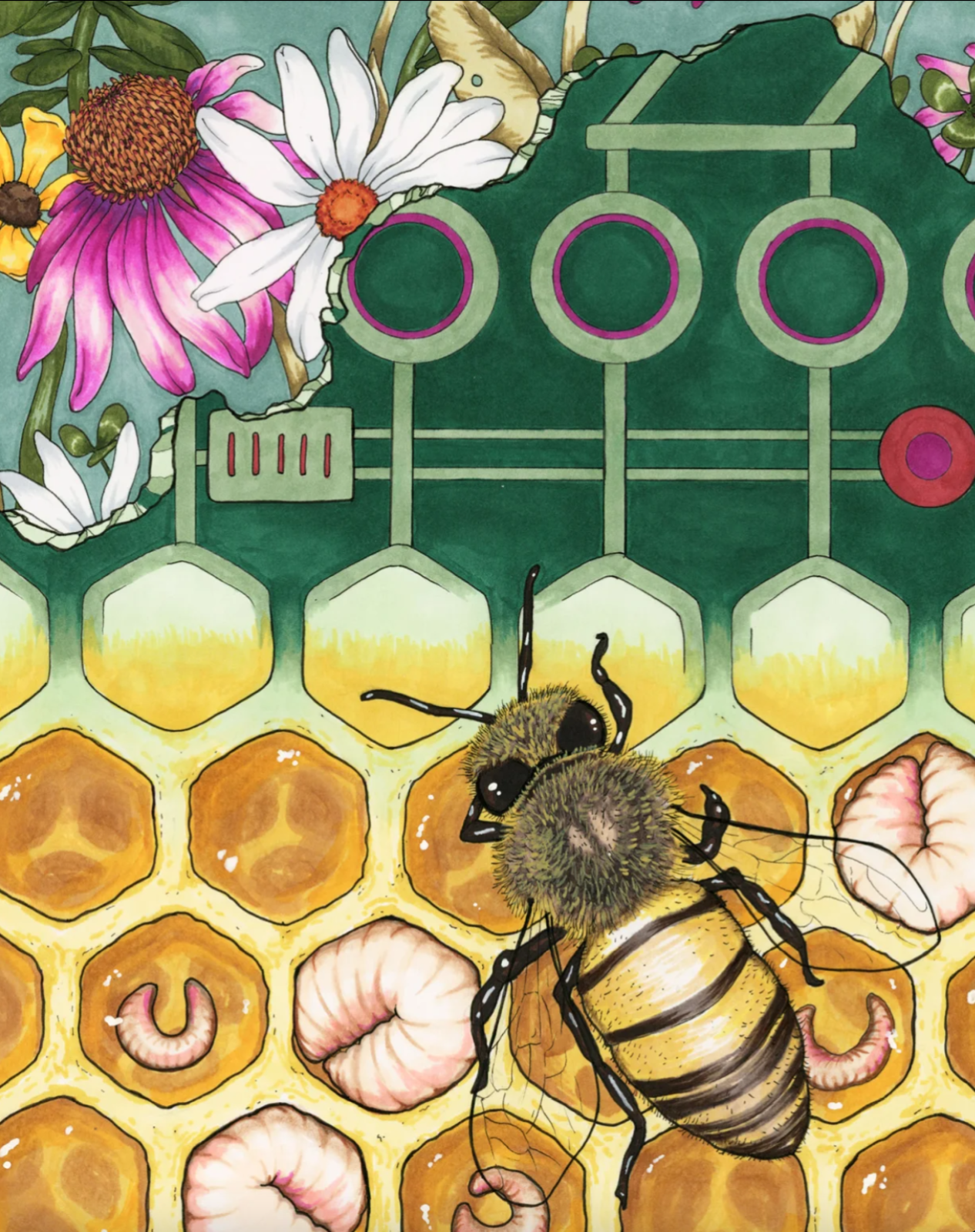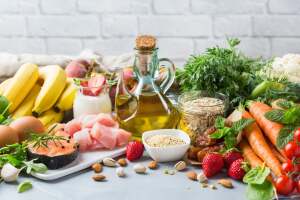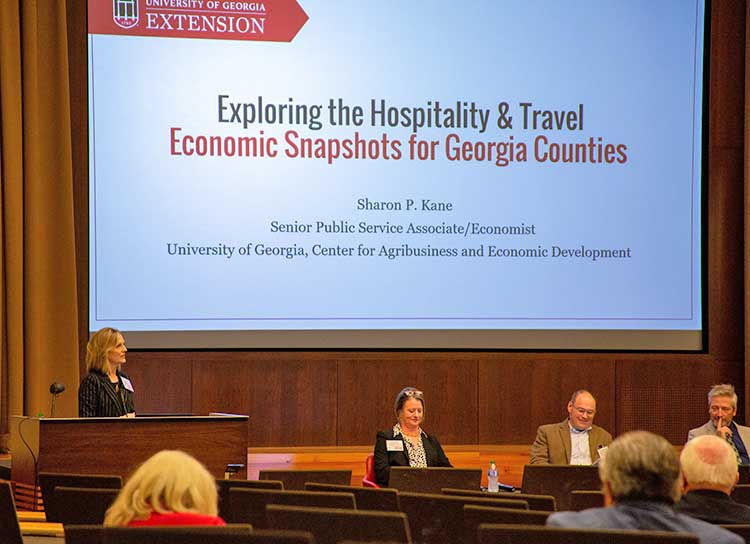Protecting our food crops
Plant Pathology
Healthy plants are the key to a sustainable future. Resistance breeding and the study of plant-pathogen-environment interactions are two of the most transformational things we can do in agriculture — this work allows us to produce crop varieties with a higher yield, at a lower cost and with a higher resistance to disease.
CAES plant pathologists are experts in plant science, microbial biology and genomics and are known for working collaboratively to produce effective and sustainable disease management strategies and tactics.
Our faculty work to ensure the economic viability of Georgia’s agricultural industry and their research contributes to national and global food security by reducing crop losses. As a result, we are better able to feed a growing world population.
Visit our plant pathology website to learn more about the research our faculty are doing to protect our food crops.
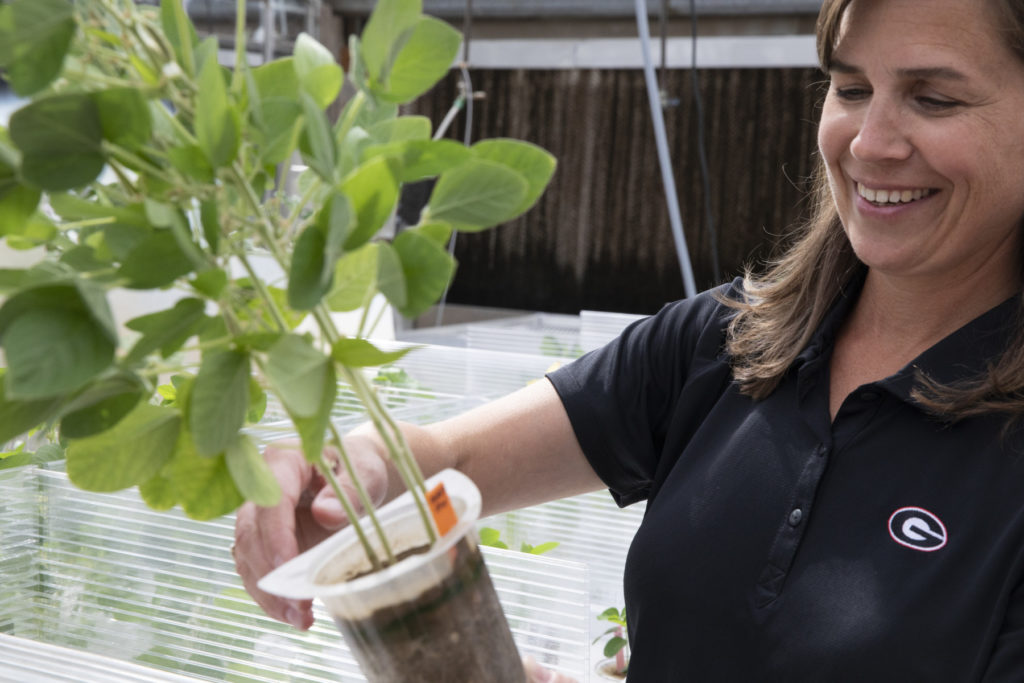
With over 60 graduate students, this is one of the largest Plant Pathology departments in the nation.
Plant pathology research helps reduce $200-250 million in crop losses annually.
UGA CAES plant disease and nematode clinics process over 1,100 plant samples and 5,200 soil samples each year to support crop producers and homeowners.
Horticulture
The horticulture department specializes in a multitude of research areas and works on a vast array of fruit, vegetables, ornamentals, endangered native species and row crops.
Our researchers are responding to the need to feed the world’s growing population by producing healthy plant varieties and improving crop yields.
They are addressing the pressures of climate change by developing the latest technologies to grow crops in limited spaces and in soil-free conditions
They are improving urban landscapes by breeding city-friendly and drought-tolerant landscape plants.
Horticulture research extends beyond the field. Visit our horticulture department site to learn more.
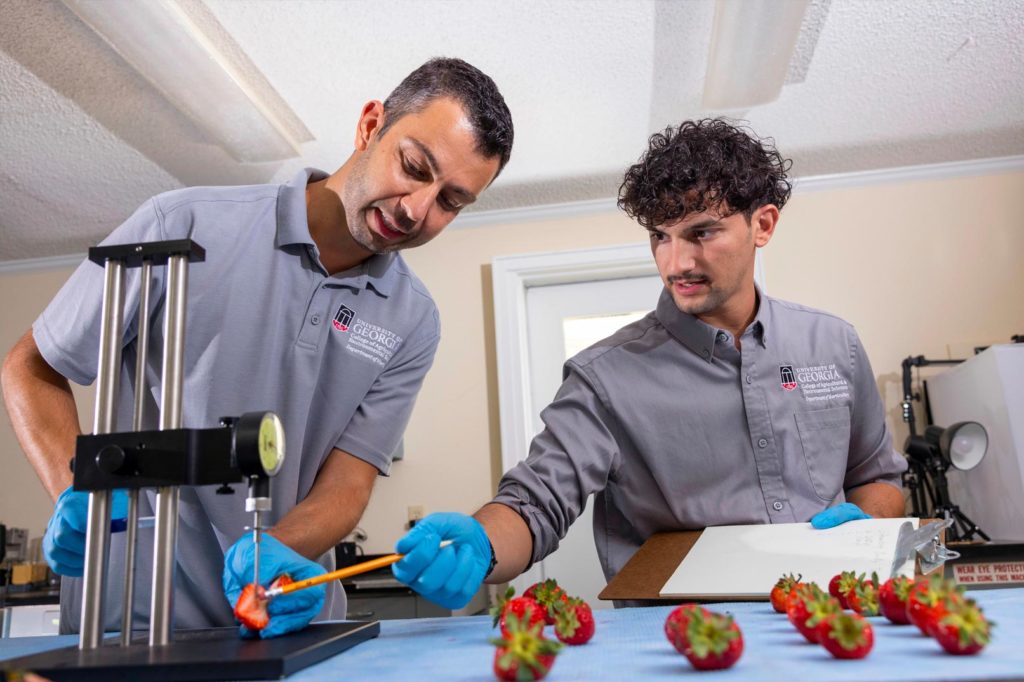
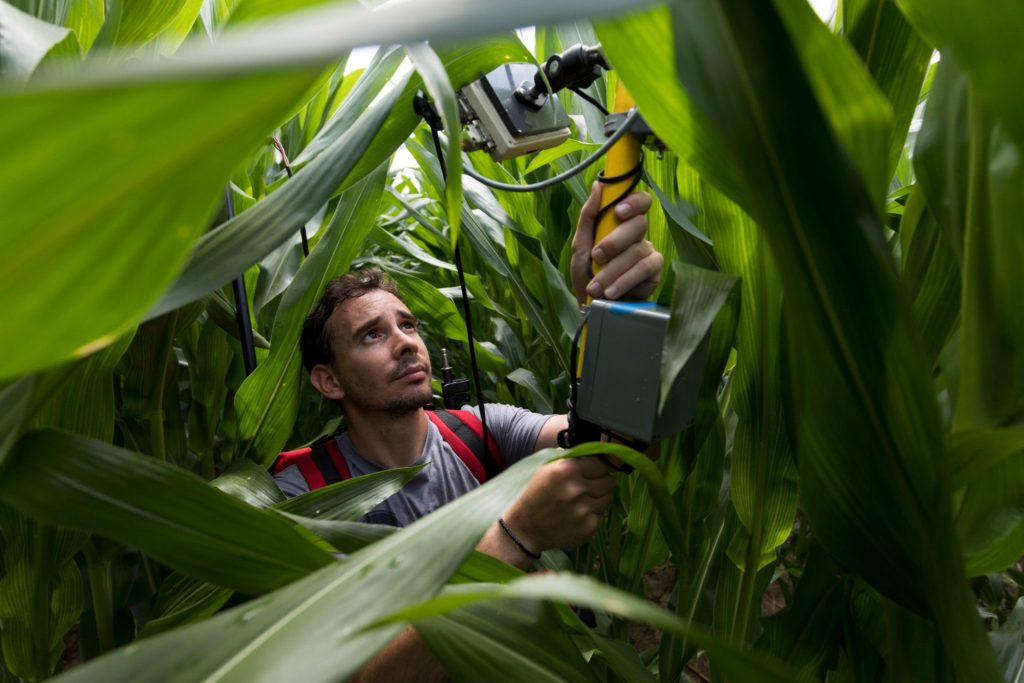
Crop & Soil Sciences
Researchers in the Department of Crop and Soil Sciences evaluate innovative concepts and technologies that enhance the field of agriculture and ensure sustainable ecosystems.
The Department of Crop and Soil Sciences provides leading-edge technology and science-based knowledge to students, farmers, agribusinesses, consumers, nonprofits and governmental agencies.
Visit our crop and soil sciences department to learn more.
Plant Breeding, Genetics & Genomics
Plant breeding is the science of boosting a plant’s desirable genetic traits to develop new varieties of crops and ornamentals that are higher yielding, more resilient and require less inputs.
When combined with the latest advancements in genetics and genomics, this critical science is significantly advancing the field of agricultural production.
The University of Georgia is home to a world-renowned, cutting-edge plant breeding program – the Institute of Plant Breeding, Genetics and Genomics.
Our researchers are developing improved plant varieties and training the next generation of students in the latest plant breeding methods. The research being done at IPBGG contributes to food security and agricultural sustainability, worldwide.
Learn more by visiting the IPBGG website.
